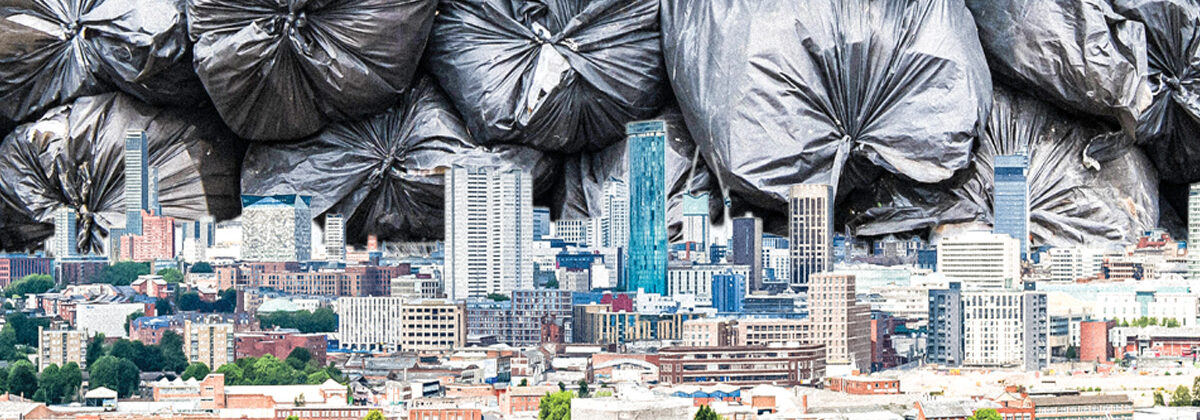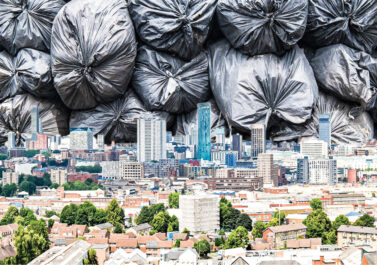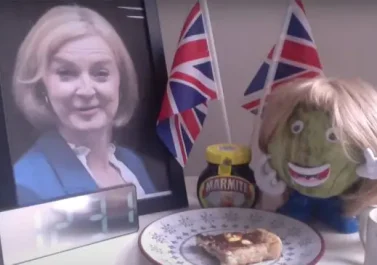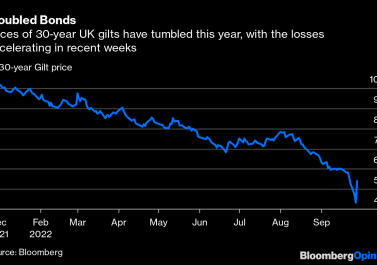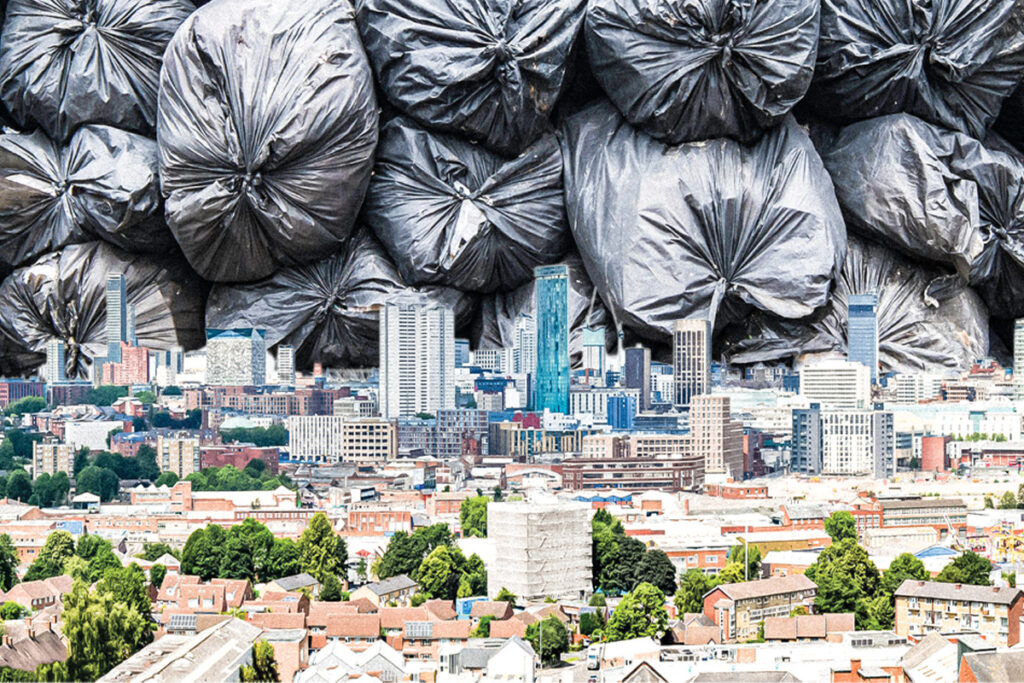
This summary was written for an international summer camp in August, feel free to send us comments.
1) What major strike movements have there been in the country where you live, in the last 12 months?
There were very few outstanding strikes, primarily smaller disputes for regrading low paid workers within the NHS, such as the 100 day strike of phlebotomists in Gloucester. The main focus for the trade union movement is the bin workers strike in Birmingham against pay cuts, which has been going on since March 2025. There have been several ‘mass pickets’, which mobilised trade union activists and left groups from around the country. The strike becomes a political issue between the left-wing trade union movement and the governing Labour Party, e.g. the striking union Unite has suspended the membership of Deputy Prime Minister Angela Rayners. The union also voted to “re-examine its relationship” with Labour over the issue, in a sign of growing divide between the union and the party who have historically worked hand-in-hand. The actual strength of the strike is not talked about much, there have been short-term occupations of scabbing temp agencies, but these actions seemed symbolic. A similar bin strike is happening in Sheffield, where Unite represents a third of the workforce.
2) Have there been any other major protest movements? What was the cause?
The main protest movement of the last year were the riots against asylum seekers, which are currently flaring up again. The media give these protests a lot of air time, perhaps in order to create a social atmosphere which allows the government to increase the amount of anti-migration raids, as Labour deported many more migrants than the Tory government, and to restrict migration laws, e.g. there is a new deal with France to curb boat migration and the work visa regime has been changed, you now need to work 10 instead of previously 5 years in order to apply for citizenship. At the same time these riots are more than a media show, they are a new composition of far-right organisers, local lower working class with many women and children involved and a strata of self-employed building workers or small entrepreneurs. The riots mainly happen in the poorest parts of the country.
Another round of protest happened after the government announced to cut the Personal Independence Payments, a benefit for disabled people. These protests were mainly organised by loose networks of anarchist adjacent and/or self-organised groups of disabled people, but they were largely unable to create wider connections to different sections of the class. The government did have to reverse the bulk of these cuts though, also partly due to conflicts within the parliamentary Labour party.
Finally there are the Palestine protests with the repression against Palestine Action (PA) – after PA broke into an RAF base and spray painted on a military plane the government have “proscribed” PA as a “terrorist organisation”, not only banning the group but enacting a law that means anyone who the state deems to be “supporting” the organisation is at risk of being jailed for up to 11 years. Since then dozens of people have been arrested at pro-PA actions, but the charges are still unclear. Again, this level of repression hasn’t been seen under recent Tory governments.
3) Are there any economic or political developments in the country where you live that you should be aware of with regard to upcoming social protests?
There are the usual post-Brexit problems of achieving trade deals, first of all with the US. It seems that recent participation in US led attacks in Yemen and other ‘expressions of submission’ resulted in a lowering of US tariffs for UK products. The UK government is in a fix, as the economic growth is dismal and new public investments would have to be financed by tax increases. Currently there is a lot of talk about ‘billionaires leaving the country’, which is the base for one of the main policies of the Reform UK economic program after their land-slide victory at recent local elections, breaking a century of two-party rule. They suggest a ‘one off tax’ for the rich of £250,000, which is lower than the current tax rate over time – and the money will be paid into the bank accounts of ‘the poorest’. Reform UK hops to win the next election with this populist measure: tax reduction for both the richest and the small self-employed builder and some hand-outs for the proles. The inflation has crept back up to 3.6% (CPI) despite lowering interest rates, and at the same time the labour market has cooled. UK economy has been stagnant for the past 12 months.
4) What distinguishes the situation of class struggles in the country you live from other countries?
First of all the post-Brexit situation and the inability of the UK state to transform itself into the ‘low tax de-regulated tech lab’ that they would like the UK to be. The result is that the UK economy is still very dependent on international finance markets, it has the highest levels of de-industrialisation and at the same time the highest levels of migration in the EU. The 2021 census found 10 million residents were born outside England and Wales, representing 16.8% of all inhabitants. In comparison, 38 million people living within the EU were born outside it, representing 8.5% of the population. This creates a peculiar social tension, the property market plays a huge role for peoples’ income – either due to high rent or mortgage or as small landlords – and at the same time the state has to import labour from Indonesia and Nepal to work in agriculture and lacks the native know-how to finish large-scale infrastructure programs.
5) Would you like to add ONE more thing that could be relevant for future conflict dynamics?
Currently most of the political debate evolves around the question of parliamentary party politics: what would a likely Reform UK government change? When will the leaders finally announce the formation of a new left party? Behind the scenes a swamp of micro-parties, factions, personalities, union leaders etc. fights over the right moment and the right pitch to form this new party, while thousands watch and dream of a ‘democratic mass party’. It is most probable that in the usual style of the UK left, this new project will create short-term excitement and bring hundreds of people together in highly publicised self-celebrations, before internal interest fights and lack of cohesion will cool things down again.
